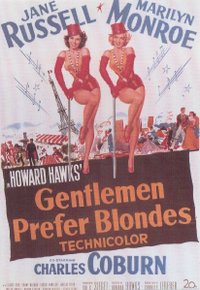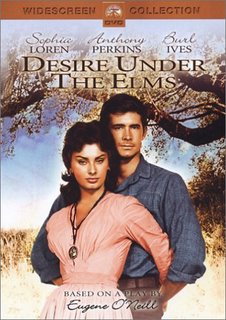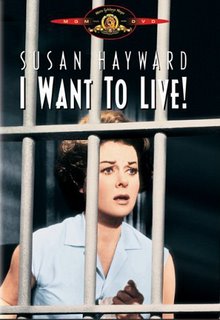Over time I've come across different thoughts, so here they are in no particular order:
 Geoffrey Allan Plauche on the Mises blog who said: [note: some spelling corrections were made]
Geoffrey Allan Plauche on the Mises blog who said: [note: some spelling corrections were made]It is implicit in the concept of action that man acts for substitute a more satisfactory state of affairs for a less satisfactory state of affairs. Keep in mind that action implies a means-end framework. Action is performed, the means, in order to attain some end. It is inconceivable that someone would act in order to attain some end that was not preferred in this way.
The obvious objection to this rests upon a failure to consider the relevant alternatives to someone's action. For example, I may prefer reading a good sci-fi novel to grading exams, but my choice to grade exams does not reveal a preference for a less satisfactory state of affairs; rather, I prefer grading exams to being unemployed, destitute, and without the means to purchase my sci-fi novels, among other things.
 So if I'm correctly interpreting what he is saying, choice is an expression of what we think will eventuate the most satisfactory ends, while preferences are simply what we would like our choices to be, regardless of feasibility and may in fact be inconsistent with our desired reality.
So if I'm correctly interpreting what he is saying, choice is an expression of what we think will eventuate the most satisfactory ends, while preferences are simply what we would like our choices to be, regardless of feasibility and may in fact be inconsistent with our desired reality.For example, my preference to indulge in a diet consisting of nothing but candies and sweets, would be disregarded by choice in light of concerns to my state of health that this preference would endanger.
Now on to the second, which I found a short while ago, Don Boudreaux of Cafe Hayek wrote:
With respect, I respect any preference that reflects a genuine willingness of those with the preference to bear personally all necessary costs to indulge the preference. But I do not respect 'cheap' preferences -- preferences that are merely expressions backed-up with no personal stake in indulging the preferences.
Suppose I invent a machine that allows me to transfer to anyone I wish the ill-consequences of my drinking too much wine...
...But if in the real world -- the world without any such machine -- I tell you "I want to drink every night without limit," what would I mean? If I didn't have personally to bear the costs of drinking heavily I would indeed "want" to do so. But because I do have personally to bear the costs of drinking heavily, in fact I don't want to do so.My saying, in these real-world circumstances, that "I want to drink every night without limit" is nothing more than a loose, slang use of the verb "to want." After all, if I really wanted to drink much more heavily than I now do, I could easily do so. But I never do -- because I am unwilling to bear the awful costs of suffering hangovers and severe risks to my health and career.
The point, in short, is that we use the verb "to want" in very different ways. Some "wants" are worthy and ought to be respected; other "wants" are irresponsible and cavalier -- indeed, not really wants at all.
It seems that according to Mssr. Don, preferences are only known through choices, and if one would not choose that preference as an end, it cannot be considered such on its own merit.
Another commenter writes in response:
Preferences and desires are different things. For example, you might prefer the lesser of two evils but want neither.
The perfect example to demonstrate that last example could be a presidential election where there ain't a dimes worth of difference between the nominated bloviated gasbags of scum, and one does not have the choice to say no to both of them.
 If such is the correct interpretation, I would disagree with that last fellow. The reason the "two evils" do not have the third option of 'exit' in such a case is only because free will is being negated. Therefore one cannot be said to either have a choice or subsequently a preference. It's like being presented with the option to be stabbed once or twice, and unless we are dealing with a willing homicide victim or a masochist, there is neither choice of not being stabbed or a true preference of being less stabbed to more stabbed.
If such is the correct interpretation, I would disagree with that last fellow. The reason the "two evils" do not have the third option of 'exit' in such a case is only because free will is being negated. Therefore one cannot be said to either have a choice or subsequently a preference. It's like being presented with the option to be stabbed once or twice, and unless we are dealing with a willing homicide victim or a masochist, there is neither choice of not being stabbed or a true preference of being less stabbed to more stabbed.But suppose, as I contemplated in another blog article, that the "two evils" we are talking about are those which are inescapable laws of reality:
Choice is the expression of an individuals free will. One has the free will to makes choices, even in choices which may result in painful conditions. For instance, a person whose appendage is gangrene may have to make the difficult choice of amputation, and being that the nature of the circumstances is not determined in the human realm of action, a person who has to choose between death by infection or amputation of a limb is still making a choice, however difficult.Ok, so may I ask what you all think? Or would you prefer not to? :)
On the other hand, a person who is told to choose between "your money or your life" did not make a choice when he hands the robber his wallet, since the false dichotomy of choice is only the result of the robbers actions fostered against the victim. The robber whom is later caught cannot claim that the wallet's former owner gave his possession of it willingly, and of his own choice. This is what a statist wants you to believe-- that your choice to not pick up and move elsewhere is a expression of your true choice and an express willingness to participate in the political system to which one is subject.







































No comments:
Post a Comment